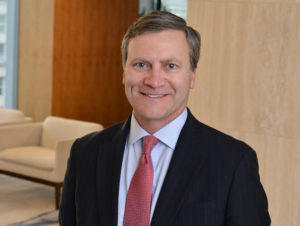
 Gregory A. Brower is a Shareholder with Brownstein Hyatt Farber Schreck, LLP in Las Vegas, NV and Washington, DC. Mitchell J. Langberg is a Shareholder in the firm’s Las Vegas, NV and Los Angeles, CA offices. Mr. Brower also serves on WLF Legal Policy Advisory Board and is the WLF Legal Pulse’s Featured Expert Contributor, White Collar Crime and Corporate Compliance.
Gregory A. Brower is a Shareholder with Brownstein Hyatt Farber Schreck, LLP in Las Vegas, NV and Washington, DC. Mitchell J. Langberg is a Shareholder in the firm’s Las Vegas, NV and Los Angeles, CA offices. Mr. Brower also serves on WLF Legal Policy Advisory Board and is the WLF Legal Pulse’s Featured Expert Contributor, White Collar Crime and Corporate Compliance.
In response to the most significant public health crisis in generations, the federal government has appropriated trillions of dollars in new spending aimed at providing much needed economic relief to individuals and businesses. With any significant increase in federal spending comes a commensurate increase in the opportunity for fraud, and government leaders have been quick to warn would-be fraudsters that oversight efforts will be robust. As early as April 23, Treasury Secretary Steven Mnuchin fired the first warning shot, promising audits and predicting criminal liability in some cases involving loans made pursuant to the CARES Act’s Paycheck Protection Program (“PPP”). On May 4, the U.S. Department of Justice (“DOJ”) followed Mnuchin’s lead by acknowledging that it was conducting a criminal “review” of loan applications under the PPP.
Since early May, DOJ has announced charges in several PPP-related fraud cases. These include charges in Rhode Island for an alleged scheme involving applications for loans by businesses that did not exist; a criminal complaint against a trucking company owner in Georgia who used loan proceeds to pay for jewelry and child support obligations; a case against a software engineer in Washington who is alleged to have attempted to obtain PPP loans based on fictitious information; and, most recently, a criminal case in Los Angeles against a Hollywood film producer who obtained more than $1.7 million in loans after allegedly making false representations in his loan applications.
These cases were investigated by some combination of the FBI, the Offices of Inspector General (“OIG”) for the Small Business Administration (“SBA”), the Federal Deposit Insurance Corporation (“FDIC”), and the Treasury Department. With these and other federal OIGs, including the newly created Special Inspector General for Pandemic Response (“SIGPRS”) committed to devoting significant attention and resources to investigating COVID spending related fraud, we can expect many more such cases being announced in the weeks and months ahead.
The bottom line here is that businesses need to be very cautious when taking advantage of this new government spending. While businesses that qualify should consider applying for this relief, applicants need to be thoughtful and deliberate about the representations and certifications they make on the required application documents. The cases highlighted above reflect DOJ’s expected focus on actual fraud in the form of intentional misrepresentations and false statements, as opposed to innocent mistakes resulting from the many gray areas in the evolving guidance, which is still a work in progress. Nevertheless, even beyond the blatant fraud cases, the federal enforcement agencies, including the Securities and Exchange Commission (“SEC”), have signaled their intent to look at even the more nuanced issues related to these programs. At a minimum, we can count on robust auditing activity, including for all applications for forgiveness of PPP loans in excess of $2 million, by both SBA itself and the OIGs with jurisdiction. And, of course, some of those audits will inevitably reveal “red flags” that will lead to investigations that can become criminal.
Businesses, including lenders, that find themselves on the wrong end of formal or even informal requests for information from federal enforcement authorities are well advised to consult with experienced legal counsel before responding to such requests.
